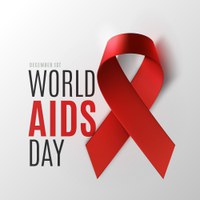World AIDS Day - End inequalities. End Aids. End pandemics.
Additionally, WAD aims to support the global effort to revive and maintain essential HIV services, particularly now during the Covid-19 pandemic.
HIV continues to be a major global public health issue, despite significant progress since the first case almost four decades ago. Progress towards ending HIV has been curtailed by the outbreak of the COVID-19 pandemic due to disruptions to services - particularly in countries such as South Africa with an ailing health system. The pandemic also poses a threat to the prevention of HIV and STIs, testing, treatment and integrated health services.
On the eve of WAD, the CEO of Soul City Institute, Phinah Kodisang, and Co-Executive Director of the Global Network of People Living With HIV, Sibongile Nkosi, hosted a dialogue discussing, amongst others, how stigma fuels HIV prevention, testing and treatment and how young people need a seat at the table when decisions are taken on HIV programmes.
Nkosi said WAD is a day to remember how far we have come with HIV as a country where people were also denied treatment because of denial phase where people died without receiving treatment and the quality of care that they needed. She said it was the work of activists that fought to ensure that today in South Africa over 5 million people are on HIV/Aids treatment.
With all the gains that have been made in the past 40 years around HIV, Kodisang said it was worrying to see HIV/Aids taking the backseat as now the focus is on the “new kid on the block” which is Covid-19.
The pair also said the important conversation that needs to be had currently is how HIV affects key populations, this is people who have high HIV infection rates. These groups are often marginalised when it comes to policy programming, they are also stigmatised and discriminated and are often not prioritised by government. These includes sex workers, people that use drugs, men that have sex with men, the LGBTIQ+ community, particularly transgender woman and transgender men.
“What we are seeing now that the number is increasing in young girls, the number is increasing among sex workers, amongst transgender woman, people using drugs. And I think that's the key question that we’re currently facing is that how we make sure we address the HIV response to respond to the issues of key population groups,” said Nkosi.
She said because of discriminatory laws against the key population they find themselves not being able to access quality healthcare or healthcare systems do not even provide any services for them.
The discussion also noted that at the centre of all the inequalities of the patriarchal society, is a young black woman who bears the brunt of all the pandemics i.e. HIV, Covid-19 and GBV.
Kodisang commented that “Women who live in poverty find themselves having to lean on these patriarchal systems where there's domination by men who have economic power to continue dominating and oppressing women and denying them their bodily autonomy. Because if somebody is going to trade your bodily autonomy for money so that you can just have something to eat, they are denying you the right to make a choice. And that's how this economic system that we live in continues to marginalise women.”
“Women find themselves at risk because then negotiating condom use becomes something that is off the agenda. You can never negotiate with someone who says, ‘take it or leave it’, you will not leave it because it's for your survival,” said Kodisang.
As part of the solution to some of the problems, the pair concluded that policy makers need to start thinking about framing policies from a feminist perspective. And also, for global policies to recognising key populations and for global activists, communities of key populations groups to demand to be included in conversations about them.
For media interviews, contact:
Phinah Kodisang
CEO of Soul City Institute of Social Justice
083 266 4202

